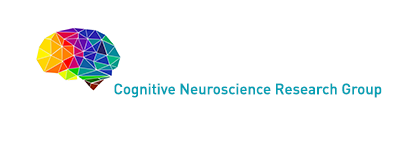PTDC/MHC-PCN/1175/2014 – “Developmental dyslexia in adulthood: cognitive profiles, oculomotor behavior and concurrent predictors of reading”, Fundação para a Ciência e a Tecnologia, Ministério da Ciência e do Ensino Superior. Project coordinated by Alexandra Reis.
The present project aims to identify the behavioral and cognitive markers of developmental dyslexia in Portuguese adults with dyslexia. It comprises of three complementary goals: (a) to examine the behavioral manifestations and concurrent predictors of dyslexia in adults, and to clarify the heterogeneity (individual differences) of the cognitive profiles in this population. This approach will provide valuable insights into long-term stability of reading deficits and the continuity in the patterns of cognitive predictors identified in young children. Considering that fluency and naming deficits appear to be persistent problems in dyslexic adults, the nature of the cognitive mechanisms underlying rapid automatized naming deficit will be explored in detail. Another aspect to be investigated is whether the capacity to acquire new orthographic representations might explain reading and naming fluency as well as spelling deficits in adults with dyslexia. To achieve the first goal, (b) it will be essential to design and validate a battery of tests adapted to the European Portuguese to assess reading and reading-related skills in adults. Up to now there is no adult norm-referenced battery available in the Portuguese language to assess these skills. Finally, we intend with this project (c) to contribute to the understanding of the cognitive mechanisms through which some individuals with a previous dyslexia diagnosis can overcome this obstacle, compensate it and cope with the demands of higher education. This knowledge will clarify the cognitive processes underlying developmental dyslexia and might provide valuable heuristics to design effective compensation interventions. Therefore, it is of vital importance to investigate compensated dyslexics for both theoretical and practical reasons.
The outcomes of the proposed project will significantly contribute to attain a new and deeper understanding of the mechanisms underlying adult reading performance as well as to clarify the cognitive processes underlying developmental dyslexia, and thus contribute with valuable information for how to design effective compensation interventions. This will serve as an important stepping stone in the pursuit of a deeper causal understanding of developmental reading difficulties such as dyslexia and other impaired attainments of reading expertise. Finally, it will serve as a basis for understanding future cross-linguistics comparisons between populations learning different types of orthographies.
Both comments and pings are currently closed.

